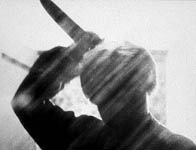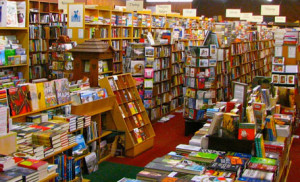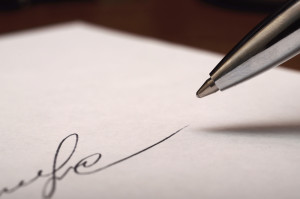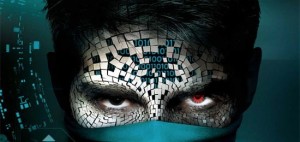Today we’re critiquing the first page of a story called THINGS NOT FORGOTTEN. I’ll add my comments at the end, and then I invite you all to add your thoughts in the Comments.
THINGS NOT FORGOTTEN
 Wednesday, 10:30 p.m.
Wednesday, 10:30 p.m.
But the tongue can no man tame; it is an unruly evil, full of deadly poison.
James 3:8
Keep running. Don’t stop until you know the madman is gone. But he was still alive.
Jason smelled his own sweat…pungent and sour. And vomit. He’d thrown up, splattering the front of his plaid flannel shirt, the taste still in his mouth. Urine soaked the front of his jeans. He couldn’t believe he’d pissed himself.
How could he run away and leave his best friend?
Eric’s screams still echoed inside his head.
His feet pounded the earth. He glimpsed over his shoulder to see if the maniac chased after him. His heart pulsed in his ears.
When he turned back, his forehead slammed into a branch. Jason staggered but stayed on his feet. Eyes watered from the pain.
Got to keep running. Don’t look back.
His feet obeyed despite the dizziness swimming in his head. Moonlight flickered patches of light through the trees. Instead of providing a path, it only contributed to the vertigo. It had been two years since he and Eric came to the cabin to hunt. If only he somehow had grabbed his rifle when he escaped, but there was no going back.
As he ran, he used his hands as battering rams to clear a path. Knock down any low hanging branches. Twigs and brush slashed at him but he refused to stop. Blood trickled down his face and arms. It mixed with sweat and stung his eyes. He swallowed. His stomach lurched, threatening to spew whatever contents remained.
His mind replayed the events in short, choppy segments. Eric and he had been drinking beer, swapping sea stories in the navy when someone knocked on the front door. If only they had never opened it.
Now his best friend was dead, or soon would be. He didn’t know for certain. As the psychopath tortured Eric, Jason worked his hands and feet out of the rope binding him to a chair.
The nearest neighbor was five miles away, but he didn’t know in what direction. In his haste, he rushed into the thicket of trees and brush, running as fast as he could. Nothing else mattered.
But he must be far away from the cabin by now. Rare streaks of moonlight revealed glimpses of the ground. He tripped over a fallen tree. He tried to catch himself, arms flailing to catch anything his hands could grasp. He went down hard, his body spiraling across leaves like a helicopter until it crashed into a tree.
Pain shot through his ankle.
Get up!
His leaden legs wouldn’t obey. A twig snapped, then a rustle, soft and subtle. Then the crunch of leaves and footsteps like someone closing in on him.
It’s not possible. How could he have found me?
My comments:
I have to say my stomach tightened as I read this page, which is good news for the writer. The use of short sentences and strong verbs (pounded, slammed, staggered, flickered) are appropriate for an action scene. The punchy verbs and short sentences used in this example help underscore the sense of urgency and panic that is being experienced by the character. (An aside: this scene reminded me of a newspaper story I once read about a mass shooting that took place in Australia. The story included an unforgettable description of a mother and her two young girls fleeing into the brush, trying to escape from the shooter.)
I did get distracted by a couple of things in the writing. As I first read the third sentence, “But he was still alive,” I wasn’t sure if “he” referred to to the victim or killer. That unclear pronoun reference should be fixed to avoid causing potential confusion.
I found the references to the actual encounter with the killer to be generic, and therefore a bit of a let-down. Imagine that a maniacal killer has suddenly appeared at the door of your remote cabin in the woods, tied you up, and tortured your best friend. Wouldn’t you have a vivid impression of the experience as you attempt to flee? Each moment spent with such a monster would be burned into into your brain cells. I think the writer could improve the scene by finding a stronger way to convey that experience to the reader.
The sentence, “It had been two years since Eric and he came to the cabin to hunt” was confusing. Had they been living in the woods for two years? The writer needs to rework that section, or simply edit out that line.
The phrase “dizziness swimming in his head” struck me as a bit off the mark. Same comment applies for the image of the body spiraling like a helicopter. That sentence comes off as a bit of overreach. (Also, I think one tends to think of a person’s arms flailing in space in a circular pattern like a helicopter, not the entire body.)
This comment is a really tiny nit: I stumbled on “rare streaks of moonlight”, probably because I initially misread it as “rare steaks.” (Silly, I know, but you don’t want to lose any reader for a reason that can easily be avoided.)
Overall, I think this page is in promising first-draft condition. The writer just needs to sharpen the language here and there, and do some polishing with an edit.
Now I’d like to hear from the rest of you. How do you like this first page? Please add your comments and suggestions. And thank you to the brave writer who submitted this work!
 Later today I’ll be driving north up the coast to attend a book signing in Santa Barbara. The event will be held at Chaucer’s, which the LA Times has called “the little bookstore that could“. Chaucer’s has flourished and grown during a time when other local retailers, including mega-bookstores such as Borders and Barnes and Noble, have faltered and closed their doors in the wake of Amazon and the advance of online marketing.
Later today I’ll be driving north up the coast to attend a book signing in Santa Barbara. The event will be held at Chaucer’s, which the LA Times has called “the little bookstore that could“. Chaucer’s has flourished and grown during a time when other local retailers, including mega-bookstores such as Borders and Barnes and Noble, have faltered and closed their doors in the wake of Amazon and the advance of online marketing.









